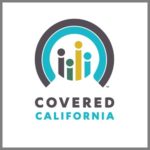
Covered California Health Insurance Exchange
Covered California has been grappling with the fear induced from a proposed rule by the Trump Administration that would impact an individual’s ability to immigrate to the United States or obtained lawful permanent resident status if the individual has been labeled as a Public Charge. The term Public Charge means receiving certain forms of assistance from the federal government as defined as “…an individual who is likely to become primarily dependent on the government for subsistence, as demonstrated by either the receipt of public cash assistance for income maintenance or institutionalization for long-term care at government expense.”
The proposed rule is complicated and has many conditions and exclusions. Because of this complexity, many individuals and families with lawful permanent status, and enrolled in Covered California, or who have children enrolled in Medi-Cal, are fearful as being labeled as a Public Charge. Covered California has sought to allay the fears of people who might be affected by the proposed rule that their participation in Covered California and monthly premium tax credit subsidy they receive will not adversely impact their status.
Covered California has issued guidance attempting to answer some of the questions surrounding the Public Charge rule change from the department of U.S. Citizenship and Immigration Services.
Proposed Changes to the Public Charge Determination Quick Guide for Certified Enroller from Covered California.
Overview
The federal government is proposing a rule that could change how immigration officials determine whether certain immigrants will become a “public charge.” Public charge is a term used in immigration law to describe someone who is primarily dependent on government assistance. A public charge assessment considers whether a person is likely to become a public charge at some time in the future. If finalized, the proposed rule would redefine the term “public charge” and the factors used to assess whether someone is likely to become a public charge.
The rule would affect individuals applying for one or more of the following:
- Admission to the United States
- To become lawful permanent residents (LPR or “green card” holders)
- To extend or change their nonimmigrant visa category – Some immigrant groups such as refugees, asylees, survivors of violence, and other protected groups are excluded from public charge
- The rule change is only a proposal and has not yet been implemented. Current federal rules regarding public charge remain in effect.
The proposed rule includes receipt of Medi-Cal as a benefit that would factor into a public charge determination, however, emergency services funded by Medi-Cal are exempted. Covered California coverage, including advanced premium tax credits (APTCs) and cost-sharing reductions (CSRs) are not treated as benefits to be considered in a public charge assessment under the proposed rule.
Many factors including age, health, family status, and the length of time the individual received the benefit must be considered to determine whether a person is considered a public charge. Receipt of a public benefit alone does not automatically make someone a public charge. Public charge is also a prospective test and no one factor is definitive. Each person’s case is unique, and their overall circumstances must be reviewed as a whole.
Covered California wants to stress the following points:
- The rule is still a proposal – The policy on public charge within the U.S. has not yet changed
- The proposed rule does not include receipt of APTCs or CSRs as a public charge benefit
- Not all immigrants are subject to the public charge test
- Federal and state laws protect the privacy of people who apply for or receive health care coverage and other public benefits.
If the consumer needs help, refer them to the Health Consumer Alliance (HCA) at 888-804-3536 to speak with a local health advocate about the public charge rule.
Public_Charge_Determination_Proposed_Rules_Quick_Guide
Covered California guidance on proposed rule of Public Charge.